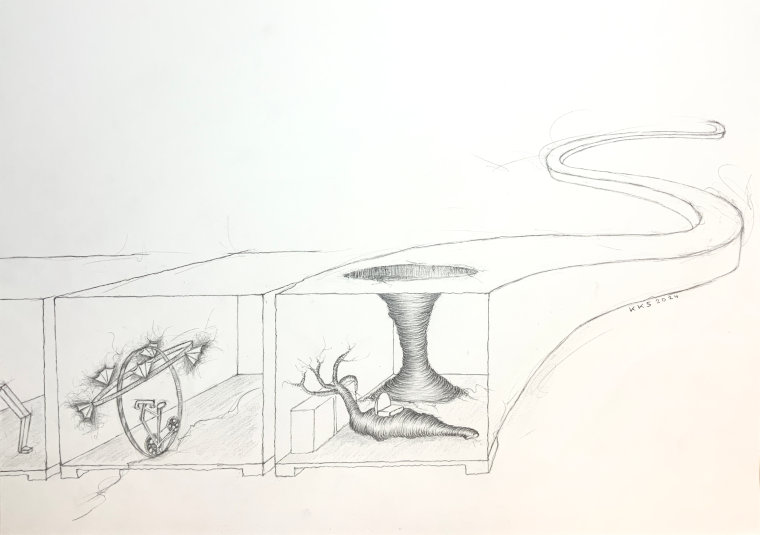Together with Alexis Shotwell, I will have a more in-depth discussion of ZADism and what we can learn from it in eco-politics on Tuesday, the 1st of October as part of the Climate Commons-Research group in Ottawa.
“Living Ecological Politics”: Thinking with ZADisme
With Austrian activist & writer Kilian Jörg and Carleton prof. Alexis Shotwell
Tuesday October 1, 2024: 4 – 5:00 p.m.
Dunton Tower, Room 2017
“ZAD,” or “zone à defender,” has entered
the European lexicon as a general term for direct collective action
against large-scale development projects that would damage the
environment. First coming into prominence in the collective opposition
to airport construction in Notre-Dame-des-Landes, France, the approach
and tactic has spread widely.
In this conversation, visiting
Austrian activist and writer Kilian Jörg will discuss the practice and
theory of the ZAD. Then they’ll be joined by Alexis Shotwell for a
conversation about how zadiste praxis offers some interesting
provocations for those of us interested in direct action for the
environment in Canadian contexts.
In their shared writing, Kilian and Alexis
are considering the concrete world-building exemplified in the ZAD as a
model for how to be with land differently. If we think of our values as
situated, place-based, as growing out of the earth and the places we
live, what forms of collective care and practice would we need to
create? We are interested in how zadism practices allow us to become
differentiated, non-universal, specific, particular, while at the same
time collective and inherently political. Can proliferating autonomous
relations to territory, in turn, contribute to pluralizing and
proliferating multiple ways to be alive together?
Sponsored by the Carleton Climate Commons & the Punch Up Collective
Take in the Film Screening of a film about Zadiste direct action followed by Discussion with Kilian
“An Island and One Night” (Une Ile et Une Nuit)
Oct. 1, 6:30-9:00 p.m.
St. Paul’s University, Social Innovation Workshop, 195 Clegg St.
--> Link <--


































